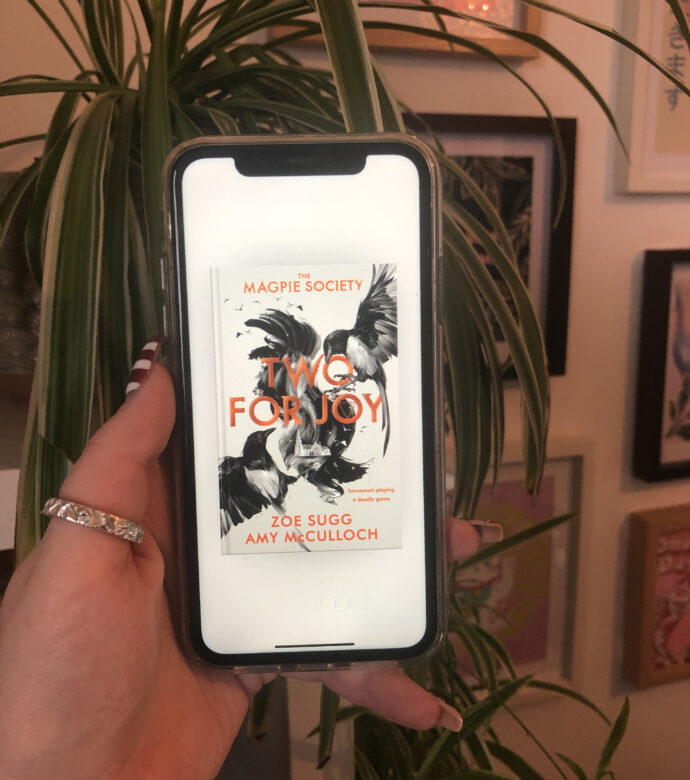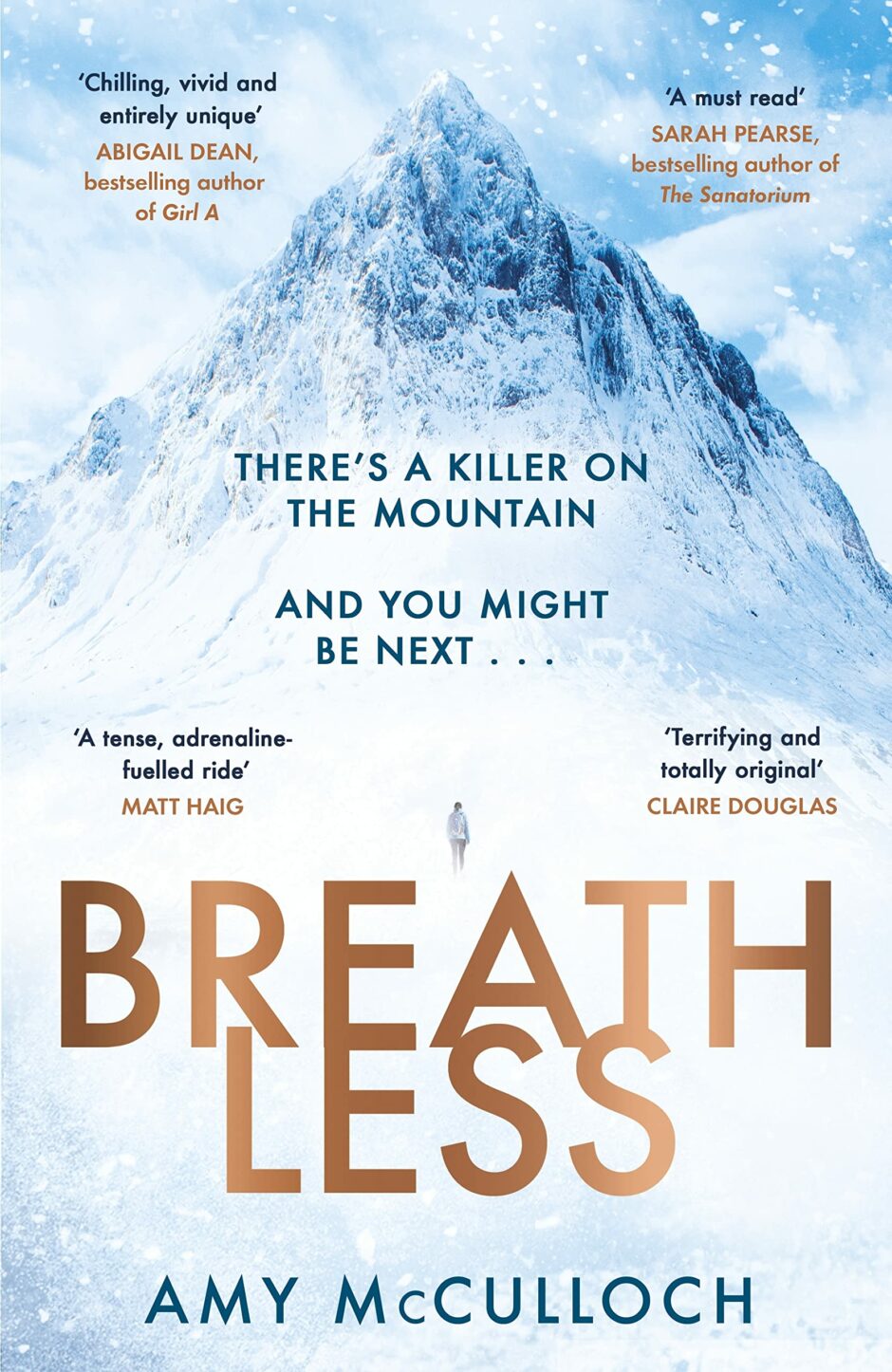
Popping pain relief to manage physical ailments, no biggy, but taking medication to make your mind feel better, thus keeping you (drum roll please) *alive* … stigma has entered the chat.
Despite recent strides in attitudes towards mental health, taking antidepressants to treat mental health problems is still widely misunderstood. This can result in devastating consequences, not only by perpetuating shame but by preventing people from seeking much-needed support or leading them to believe they’re ‘not sick enough’ to get help.
We spoke to GP, Member of the Royal College of General Practitioners and a Member of the British Association of Lifestyle Medicine, Jack Ogden, and NHS Mental Health Nurse, Andy Halligan, supporting the We Are The NHS campaign, to dispel the myths about antidepressants.
From when you should consider taking them to the potential side effects to be aware of and most importantly the benefits of a life-saving treatment that has proven effective for millions, we hope this article empowers you to take your meds and be kind to yourself, whatever form your self-care takes this year.

When would antidepressants be the right course of medication for someone? Are they only suitable for someone with depression, for example?
J: Antidepressants are just one of the options that are available for people with depression, however, they are not by any means the only option for people who are feeling that they are depressed or have a low mood. Other interventions which are known to be beneficial include counselling such as Cognitive Behavioural Therapy or CBT, physical exercise which causes the release of endorphins, stress management and improvement of sleep with techniques which are sometimes called sleep hygiene. Using a combination of antidepressant tablets with these other interventions is by far the best approach to managing low mood. Generally, I would suggest trying antidepressant tablets if some of these other techniques have not worked or if the depression is very severe.
A: Antidepressants are primarily used to treat clinical depression but they can also be used to help treat other mental health conditions such as Anxiety, Obsessive Compulsive Disorder (OCD), Post Traumatic Stress Disorder (PTSD), Bulimia and different panic disorders
However, there isn’t one rule that fits all in relation to who should commence on antidepressant medication. If you are struggling, it is important to talk to a professional whether that’s your GP, clinical psychologist or psychiatrist about your individual situation. Your doctor might suggest that you try antidepressants if you have already tried lifestyle changes or therapies and they haven’t worked.
It may be that you are already practicing many of your known coping mechanisms which help keep your anxiety and depression under control. For some people this may include exercising, improved sleep hygiene, eating well, making time for yourself and stress-reducing activities but if you continue to feel low and your symptoms are interfering with your ability to take care of yourself or ability to complete basic daily tasks such getting up in the morning or getting through the day; then this is when your doctor may suggest commenting on an antidepressant.
There are different types of antidepressants, could you give an overview of the different types available and the differences between them. How to know which one will suit you best?
J: There are several different types of antidepressants available, by far the most common type is a group of antidepressants called Selective Serotonin Reuptake Inhibitors or SSRIs, these include medications such as Prozac, which is also known as Fluoxetine and others such as Sertraline and Citalopram. SSRIs are an excellent starting point for people with depression. Different antidepressants work on different receptors in the brain, by either blocking them or causing them to release more neurotransmitters, the subtle differences between antidepressants cause slightly different effects and can be used when patients suffer from different symptoms of depression or anxiety. For example, a medication called Mirtazapine can be helpful in patients with depression or anxiety who struggle to sleep. Occasionally, we can combine antidepressants so that the benefits from each different antidepressant can be felt.
A: Just as not every therapist matches with every person, not every antidepressant will work for every person who tries them. It might require trial and error to find the right antidepressant but it is important to keep in mind that even if you may need to change medications this doesn’t mean things aren’t treatable. Anxiety and depression are highly treatable. It just requires patience and working with your GP or mental health team.
There are many types of antidepressant medications available to treat depression, including:
- Selective serotonin reuptake inhibitors (SSRIs) Doctors often start by prescribing an SSRI. These medications generally cause fewer side effects and are less likely to cause problems at higher therapeutic doses than other types of antidepressants are. Common examples of SSRI medications include Sertraline, Citalopram and Fluoxetine.
- Serotonin and norepinephrine reuptake inhibitors (SNRIs). Examples of SNRI medications include Duloxetine and Venlafaxine.
- There are also Atypical antidepressants. These medications don’t fit neatly into any of the other antidepressant categories. More commonly prescribed antidepressants in this category include Mirtazapine and Bupropion. Bupropion is one of the few antidepressants not frequently associated with sexual side effects.
- There are also Tricyclic antidepressants such as Amitriptyline that tend to cause more side effects than the newer antidepressants. So tricyclic antidepressants generally aren’t prescribed unless you’ve tried other antidepressants first without improvement.
If the depression does not respond to antidepressants alone, other treatments such as CBT may also be used to help achieve better results. Your doctor may even recommend combining two antidepressants, or other medications may be added to an antidepressant to enhance antidepressant effects.
Everyone responds to medication differently but how long does it usually take for someone to feel the full effects of antidepressants?
J: With SSRI’s I normally tell patients that it can take around 6 weeks to see if it is beneficial, although it can be shorter depending on the patient and also on the antidepressant type. As a general rule, it does take at least a couple of weeks to see any benefits.
A: When you start taking an antidepressant, you probably won’t feel better right away. It takes around 4-6 weeks for the medication to build up in your body, but you may feel some benefits sooner than this, such as improved sleep. Speak to your doctor if you don’t feel any benefit after taking an antidepressant regularly for two to four weeks, or if you feel worse. It’s possible that your doctor will increase your dose gradually or may recommend a different antidepressant that suits you better.

Is there an ideal time period to be on antidepressants, or can you take them on a long term basis, too?
J: There are no hard and fast rules around how long patients should take antidepressants. If the patient has suffered from depression for a long time, it may be appropriate for them to take antidepressants for many months or even years; and indeed some patients take them for many years. If someone has developed depression within a relatively recent timeframe, say, months, it might be sensible to try antidepressants for a shorter period, for example, 3 months. The approach taken needs to be individualised to the patient’s personal circumstances.
A: There is no ideal time to be on an antidepressant as each individual is different. For some, antidepressants act as a life vest that keeps us afloat through the toughest times. Others may need to take them for longer periods. Generally, doctors will recommend that a person stays on their antidepressant medication for around six to nine months before considering taking them off them.
It is important to remember as well that starting on an antidepressant doesn’t mean you’ll be on it forever. Some people need medication indefinitely, but many do not. Life circumstances change and progress through other avenues such as therapy can make a big difference too.
Some people might have bouts of low mood for a few weeks, are antidepressants ever a quick fix solution?
J: I think it is really important to remember that having episodes of low mood for a few weeks is really common in this stressful world in which we live. Lifestyle changes and some of the non-medicine approaches I have already mentioned are perfectly suited to shorter episodes of low mood or anxiety. While antidepressants are probably better suited to more severe and longer-lasting episodes of depression or anxiety.
A: Everyone feels low or down from time to time. It does not always mean something is wrong. Feeling low is common after distressing events or major life changes, but sometimes periods of low mood happen for no obvious reason. You may feel tired, lacking confidence, frustrated, angry or worried. But low mood will often pass after a couple of days or weeks. If you’re still feeling down or no longer getting pleasure from the things that you once did and if this lasts for several weeks, you may be experiencing depression. Only then antidepressants would be recommended. It’s not a quick fix solution.
What side effects should those taking antidepressants be aware of?
J: As with any medication, antidepressants can have unwanted side effects, these side effects are often much more acutely felt when you first start taking them. We often see side effects such as dizziness, a short term increase in anxiety, headaches, dizziness abdominal discomfort, a low sex drive and tiredness. It is always sensible to discuss these with the doctor when you first get prescribed them and read the literature in the box when you receive the prescription. Reassuringly, most of these unwanted side effects often subside after a couple of weeks of taking the medications.
A: Common side effects can include feeling drowsy, sick, dizzy, agitated, experiencing a loss of sex drive and vivid or distressing dreams. However, side effects from antidepressants generally improve with time. In addition, you’ll usually see your doctor every few weeks when you first commence on antidepressants to discuss how well the medication is working. You can also contact your doctor at any point if you experience any particularly troublesome or persistent side effects. In general SSRIs are better tolerated than most other types of antidepressants. The majority of people will only experience a few mild side effects when taking them.
What should you do if these side effects become difficult to manage?
J: If the side effects are too intense or not tolerable for the patient it may be sensible to reduce the dose slightly until your body adapts to the new medications. In some cases, a different type or class of antidepressant should be tried.
A: If you experience any side effects, you should contact your doctor immediately for further advice and do not stop taking them ‘cold turkey’ as this may lead to further distress such as withdrawal symptoms.
In rare cases, some people experience suicidal thoughts and a desire to self-harm when they first take antidepressants. Young people under 25 seem particularly at risk. If you experience any such symptoms, you should contact your GP or go to A&E immediately.
Is there anything you should avoid if you’re taking antidepressants?
J: If you suffer from any side effects which may affect driving, such as dizziness or lethargy it is important not to drive until you feel safe to do so.
A: If you’re taking antidepressants, you should be wary of drinking alcohol as well as illegal substances such as cannabis, cocaine etc. As alcohol is a depressant, drinking alcohol can make your symptoms worse. As with alcohol, certain drugs and medication can make symptoms of depression or other mental health conditions worse. Caffeine and tobacco should also be avoided in some cases. Some antidepressants can also cause dizziness, drowsiness and blurred vision, particularly when you first start taking them. So if you experience any of these problems, you should not drive or use machinery.
Alcohol is a major cause of depression and should always be reduced if one wants to improve their depression, as it can counteract the benefits of an antidepressant. Another important consideration with regards to alcohol is that it can affect sleep quality which is directly related to mood and recovery from depression.
There is increasing evidence that eating a healthy diet, which has plenty of fibre and includes a large proportion of fruit and vegetables, can improve the gut microbial biodiversity, this is called the gut microbiome. The gut microbiome has recently been proven to link directly to the brain through the nervous system and can have a major impact on a patient’s sense of wellbeing and also their mood.
For anyone who wants to try coming off their meds, how do they go about doing that safely and with support?
J: The key to stopping antidepressants is to do it in a slow and controlled manner with the support of your doctor and people close to you. Often it can take a couple of months to stop antidepressants properly but again this depends on the patient. While antidepressants are not in themselves addictive they can cause withdrawal symptoms when you stop taking them. Symptoms of withdrawing too quickly include anxiety, insomnia, headache and dizziness. Occasionally, people report electric shock type sensations. However, this should not put people off taking them or stopping, as these symptoms can be mitigated by reducing the dose slowly for a couple of months.
A: It’s important that you do not stop taking antidepressants suddenly. Many people find that they become unwell when they stop taking medication suddenly ‘going cold turkey’. So, please discuss this with your doctor before you make any decisions. When you agree that it is time to stop, your doctor can help put together a withdrawal plan and advise on how to come off your medication in a controlled and safe manner.
A reduction or withdrawal plan must be flexible and tailored to you. It should allow you to reduce the dose at a rate that you find comfortable – as slowly as you need to avoid any withdrawal symptoms.
Any dose of antidepressants should be reduced slowly, normally over 4 weeks, but sometimes longer. It’s not possible to tell who will be affected, so it’s always advised that you slowly reduce your medication over a period of time to give your mind and your body time to adjust to being without it.
What are the key benefits of taking antidepressants?
J: Antidepressants have a key place in the management of depression and anxiety, they can help lift people out of the dark place that is depression. But it is vital to use them as part of a mix of different interventions such as an improved diet, counselling and CBT, exercise, sleep improvements, and stress management.
A: Although antidepressants may not cure depression, they can reduce symptoms. Taking antidepressants may help to lift your mood and improve your sleep pattern. This can help you feel more able to do things that you may not feel possible while you’re depressed. This can include engaging in other types of support such as therapy that are beneficial for your mental health. If you have a form of anxiety or phobia, an antidepressant could help you feel calmer and more able to deal with other problems. Antidepressants can also improve your ability to concentrate and reduce the feeling of restlessness or suicidal ideation.

Mental Health Ambassador, Dr Alex George, recently started the campaign #PostYourPill to encourage people to be proud of taking control of their mental health and to combat medication stigma. Why do you think there’s still such shame and judgement around taking medication for your mental wellbeing?
J: Unfortunately, there is still a stigma around mental health, I think this is partly historic and partly because people misunderstand the causes of mental illness. It might be surprising to hear that 1 in 4 people experience a mental health problem of some kind each year and the majority of people will suffer at some point in their life. It really is like any other physical problem and is nothing to be ashamed of. I am reassured by campaigns such as #PostYourPill and I really think society’s attitudes are changing.
A: Society is still very judgmental, older generations especially believe that mental illness is a sign of weakness or something to be scared of. Mental illness is not really understood by many. Even if celebrities are starting to talk about it more in the media, people in the real world need everyday people to talk about their issues; in work, in the pub, with family, something a bit more genuine. Challenging this stigma is very hard to overcome and it won’t happen overnight but I believe with the right patience, empathy and education, positive changes are possible. We may not quite be there yet but I’m confident we’re (slowly) moving in the right direction.
What changes would you like to see happen to destigmatize the attitude towards seeking help?
J: I think we need to see actions from those in government to show that they care by improving funding for mental health services in the UK, it is catastrophically underfunded. I would hope by funding these services better society as a whole will realise just how common these problems are and it will change the views of people who have no experience of them. On a personal level, I think that if everyone as individuals took a bit of time to go out of their way and show people who are struggling that they care, this will really go a long way to changing attitudes.
A: Communities and the media should focus more on the positive. Empowering those struggling instead of shaming them. The media and society as a whole needs to put more emphasis on promoting education and actively sharing practical support at every level and opportunity, whilst also challenging prejudices. Not only will this break down barriers but it will improve the quality of life for those suffering which will inevitably lead to better outcomes for our wider society. De-stigmatising mental illness from an early age in schools would also increase the likelihood of those suffering and maybe fearful, to seek the help they need. Improving knowledge, especially from an early age will also help to dismiss all those old-age myths and fears some people still hold. In addition, if every one of us is a bit more honest and leads by example to actively challenge false beliefs, strives to be anti-oppressive in everything we do and towards everyone we meet, positive change is possible. Only then, we can challenge the stigma within our society.
One thing you’d like everyone to know about taking antidepressants…
J: There is a common misconception that antidepressants are addictive and I am pleased to say they are not, however, they should be started with care and at the right time. They must be part of a programme of changes which include lifestyle changes and counselling.
A: If you are struggling, there is no shame whatsoever in taking any form of medication, you just need to do what is right for you to get you through those difficult times and remember to be more kind to yourself.
Here’s to making 2022 a year of healing without shame.



































































































I LOVED listening to Two For Joy over Christmas and New Year, especially after waiting so long to know what happened! The book is voiced by two different people for Audrey and Ivy which I always find very engaging – similar to Beth O’Leary’s audiobooks. If you have a resolution to read more in ’22 I highly suggested getting some audible action in there! On to the review – a cracking follow up, I actually really enjoy sequels as you know the drill and so many of the characters that you can get into the meat of the book, which TFJ absolutely did! Illumen Hall is the perfect place to escape to and the twists and turns in this book kept me listening well past my bedtime. If like me, you love to binge, then I’m pretty jealous of anyone who gets to read The Magpie Society books back to back this year, the perfect January entertainment if you haven’t picked them up yet!
Rating: 6/5 as I preferred it to the first one and that was a 5!
Would you recommend: 100000% get both and blast them this January